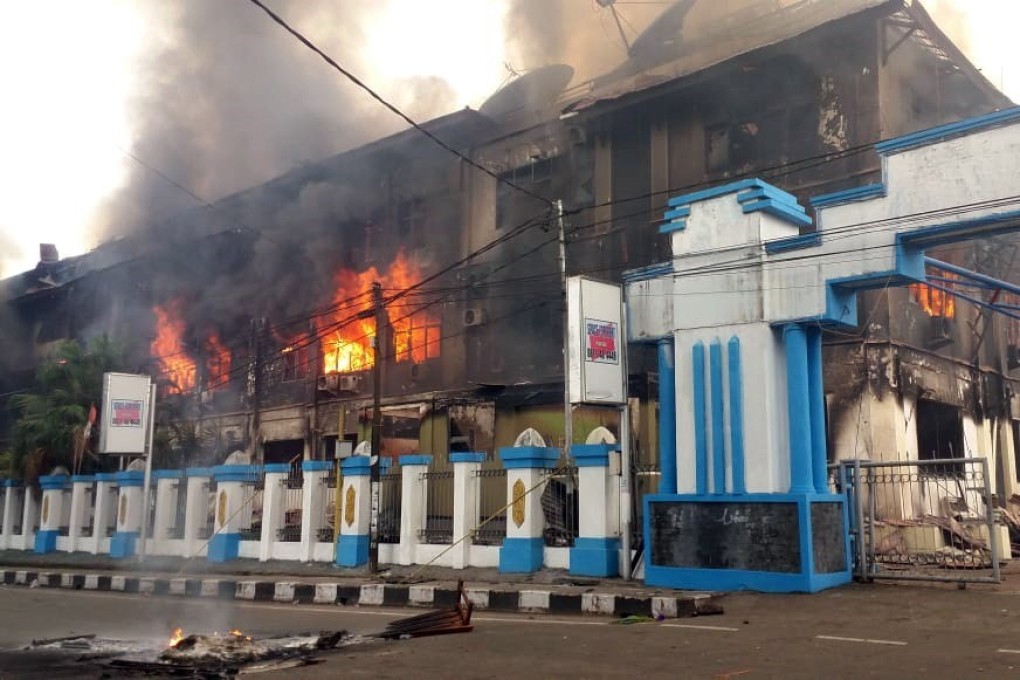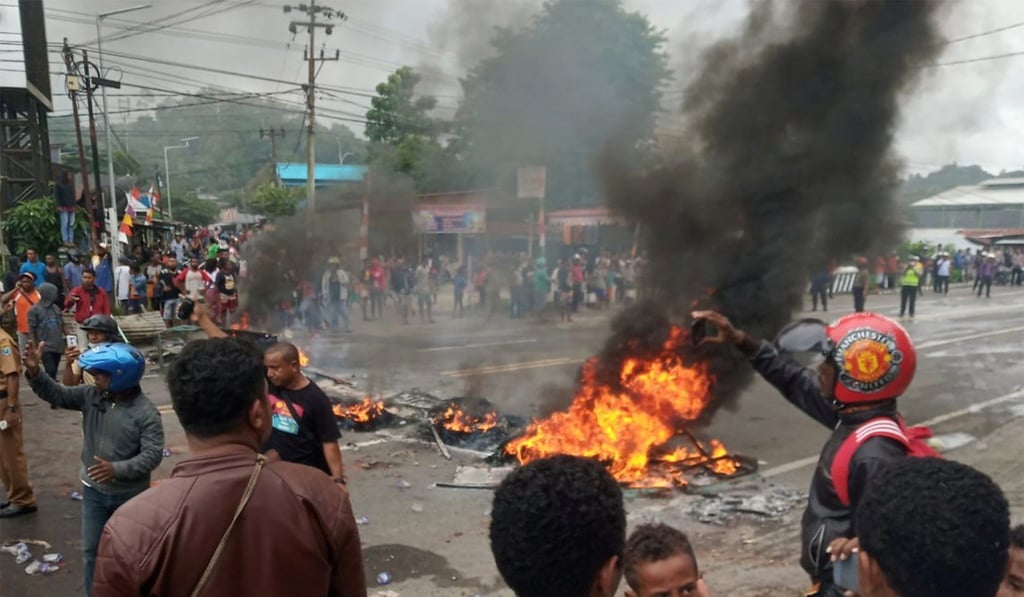Advertisement
Indonesia’s Papua burns as protests against alleged police abuse turn violent
- The protests came after pro-independence student activists were detained over the weekend for allegedly destroying an Indonesian flag
- Papua declared itself independent in 1961 but was incorporated into Indonesia after a referendum in 1969
2-MIN READ2-MIN

Riots broke out and thousands of people set fire to a local parliament building in Indonesia’s Papua on Monday in a protest against the weekend detention of pro-independence student activists.
Demonstrators took to the streets of Manokwari, the capital of West Papua province, bringing the city of some 130,000 to a standstill as its civic building was nearly reduced to ashes.
The angry mob torched the government building and set fire to cars and tyres on several blocked roads leading to a seaport, shopping centres and offices in Manokwari, Vice Governor Mohammad Lakotani said.
Advertisement
“The city’s economy has been paralysed by the demonstrators,” Lakotani said. “Negotiations between protesters and the authorities are currently underway to end the riots.”

Advertisement
Indonesian President Joko Widodo sought to ease tensions on Monday, urging rioters to keep calm.
Advertisement
Select Voice
Select Speed
1.00x